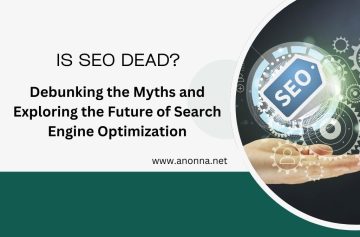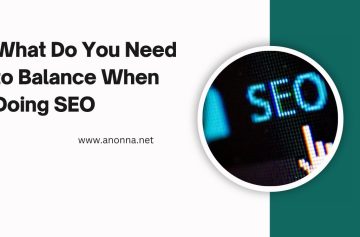
Is Google Punishing Keyword SEO Blogs? Uncovering the Truth About SEO in 2025
Lets know, Is Google Punishing Keyword SEO Blogs? Search Engine Optimization (SEO) is one of the most important aspects of digital marketing that enables websites to drive organic traffic and rank higher on search engine result pages (SERPs). Keywords have been an essential part of SEO since its inception, enabling content creators to target particular queries and expose their content to their preferred audience. The strategic use of keywords can help businesses and bloggers rank higher on Google and thus gain more website traffic and eventual conversions.
In fact, some recent threads in the SEO communities indicate that Google is taking to punishing blogs that do keyword stuffing. Website owners across the globe have been adversely affected despite the practice of conventional keyword SEO strategies for their websites. This poses a question whether Google is punishing blogs that simply write about a topic from a search perspective, or if it’s just fine-tuning its algorithm to value high-quality content, rather than the keyword-to-content ratio.
In this article, we will not only analyze if Google is indeed punishing keyword blogs, but also how algorithm updates can influence the answer, and how to bring your content to the top. Content creators who adapt to Google’s best practices and stay compliant with their evolving SEO recommendations can focus on ranking highly and not have to worry about being penalized.
A Deep Dive into Google’s SEO Guidelines in 2025
How Google’s Algorithm Works
Over time, Google has consistently been updating its search algorithm to produce relevant, good-quality content. With time, Google has rolled out several updates to try and improve how websites are ranked, so that search results can focus on value and user experience rather than those who managed to stuff keywords onto their sites.
Details About Updates to the Google Search Algorithm
Many of Google’s core updates — particularly the Helpful Content Update and SpamBrain — work to identify and de-rank low-quality, manipulative content. Google’s algorithm detailing for 2025 emphasizes:
- Returned Results: Google is now looking at not only matching query keywords but also trying to understand query intent to return results that provide actual value.
- Experience, Expertise, Authoritativeness, and Trustworthiness (E-E-A-T): Quality content from verified experts ranks better.
- Adding UX signals: Page load speed, mobile-friendliness, dwell time, bounce rate.
- AI and Semantic Search: Google’s AI-powered models like BERT (Bidirectional Encoder Representations from Transformers) and MUM (Multitask Unified Model) enable the search engine to comprehend context behind searches, enhancing the accuracy of the results.
Artificial Intelligence and Machine Learning in Website Rankings
AI and ML are the new cornerstones of SEO today! Hungary’s AI-powered systems analyze search intent, user behavior, and content relevance to determine ranking.
How AI Impacts SEO
- Natural Language Processing (NLP): AI allows Google to comprehend content similar to human comprehension. It rewards well-structured, informative writing rather than writing filled with repetitive keywords.
- Automated Spam Detection: Google has become adept at recognizing unnatural SEO practices (keyword stuffing, irrelevant links, duplicate content).
- Customized Search Results: Search engines use machine learning to provide customized search results according to a user’s previous search history, preferences, location, etc.
These changes have rendered traditional keyword-driven SEO practices less effective, forcing content creators to prioritize quality, engagement, and contextual relevance.
What Google Has to Say About Keyword Stuffing
Keyword stuffing is a black hat SEO technique where target keywords are overused or repeated on a web page to influence search rankings. It is well known that such practices are against Google Webmaster Guidelines and can result in penalties, including reduced rankings or removal of pages from a Google index.
What is Keyword Stuffing and How Does It Differ from Natural Keyword Usage?
Keyword stuffing is the artificial insertion of unrelated keywords into your content, rendering it effectively unreadable. This could include:
- Inserting the same keyword several times unnaturally (e.g., “stop using the best SEO services out there, our SEO services are the best, our SEO services are the best SEO services you can find”).
- Stuffing keywords for the sake of it, causing hindrance in readability and user experience.
- Occupying text or keywords not directly related to content.
On the other hand, natural keyword usage is when you include keywords that fit in seamlessly with the rest of the content. This includes:
- When keywords make sense in sentences, instead of being forced in.
- Focusing on writing for people, not just for search engines.
Over-Optimized Content Examples That May Incur Penalties
Google penalizes for anything that looks like rank manipulation through excess optimization. Some red flags include:
✅ Good SEO Example:
“To improve your website’s SEO ranking, be SEO-friendly content with proper keywords and a good backlink strategy.”
❌ Keyword Stuffing Example:
“Our SEO services are top-tier SEO services for SEO rankings. Contact Our SEO Experts for SEO Success if you need SEO services.”
Other over-optimization strategies that may result in penalties include:
- Keyword stuffing in meta tags and descriptions (i.e., an unnatural list of repeated keywords).
- Stuffing keywords in headers awkwardly (E.g., “SEO Ranking Tips | Best SEO Ranking | SEO Strategy for SEO Ranking”).
- Close to exact-match anchor text used excessively (ex. all links were using “best SEO company” instead of different anchor texts).
With Google taking into account the user intent and quality of content, bloggers and SEO professionals need to move themselves from legacy keyword-focused tactics to all-rounder user-focused strategies.

So, Is Google Actually Attacking Keyword SEO Blogs?
There has been recent debate on whether Google is punishing keyword-focused SEO blogs, particularly in light of updates to its ranking algorithms. Sure, some bloggers do report declining traffic, but it doesn’t mean Google is targeting keyword SEO blogs. In fact, Google is updating its search criteria to put more emphasis on high-quality, user-centric content rather than the traditional keyword stuffing approach.
How Algorithm Updates Affect SEO Blogs
Google regularly pushes updates to its search algorithm so that users find the best, most relevant content for their queries. A few substantial updates have directly impacted the performance of SEO blogs utilizing a primarily keyword optimization-focused strategy.
A Summary of the Latest Google Updates
Helpful Content Update (HCU)
- Launched with a focus on human-first content over AI-generated or over-optimized SEO content.
- Aimed at blogs that do not add much value, are tailored for search engines rather than useful insights or keyword rankings.
Core Web Vitals Update
- Focuses on page experience metrics like loading speed, interactivity, and visual stability to rank sites providing a smooth user experience.
- Even if these blogs are well optimized for keywords, slow load times or poor mobile responsiveness can mean a ranking drop.
SpamBrain & Link Spam Update
- AI detects manipulative SEO tactics including keyword stuffing, unnatural backlinking, and doorway pages intended to game the algorithm.
- For example, blogs with too many repeated keywords or too spammy backlinks can face penalties.
Penalty Case Studies of Affected Blogs
Case Study 1: High Traffic Blog with Over-Optimized Keywords
- Example of a tech blog that dropped 40% of traffic after the Helpful Content Update.
- Keyword stuffing: The site crammed exact-match keywords into every single paragraph.
- Revising content to be more conversational, informative, and user-focused helped its rankings.
Case Study 2: A Niche Blog with Poor UX & Slow Load Time
- A fashion blog that had a lot of keywords but lost a lot of rankings.
- An analysis indicated that the website resulted in slow loading times, aggressive pop-ups, and lackluster mobile optimization.
- Core Web Vitals issues were resolved and UX improvements brought back search visibility.
How Google Discovers Spammy SEO Practices
Google’s AI-powered search system can recognize when SEO tactics are manipulative and designed to artificially inflate rankings over providing users with value.
Issues with Keyword Density and Unnatural Placement
What is Keyword Density?
Keyword density is a ratio of how often a keyword appears in the text to the total number of words.
There is certainly no one-size-fits-all “ideal” percentage, but these numbers should be closer to the 1-2% range in order to remain readable.
Why Keyword Stuffing Is a Risky Move
Content that overuses that same keyword sounds, well, robotic and unreal.
(Penguin) and Panda algorithms utilize Natural Language Processing (NLP) to recognize forced keyword usage and downgrade content that looks spammy.
How to Use Keywords the Wrong Way and the Right Way:
🚫 Bad Practice (Keyword Stuffing)
“If you are looking for the best digital marketing agency, our digital marketing agency provides the best digital marketing services compared to any digital marketing agency.”
✅ Good Practice (Business-as-Usual Approach)
Dude, I am going to tell you a secret. Your business that as an expert in SEO, content marketing, and social media. [Link: Our Team]
Significance of User Experience (UX) and Engagement Signals
Google assesses how consumers engage with the content and applies engagement signals as ranking signals. Such blogs, which get higher engagement with positive user experience, rate better, and vice-versa.
Important UX Factors That Affect SEO Rankings:
Page Loads / Bounce Rate
If users are bouncing off your site (leaving without engaging), it shows that the content is not valuable or interesting.
Time on Page
If visitors must spend more time on a page, then the content is valuable and structured.
Click-Through Rate (CTR)
CTR on search results pages indicates how relevant the content is perceived by Google.
Best Practices for Increasing UX and Engagement:
✅ Format for readability (short paragraphs, bullet points, and subheadings).
✅ Share images, videos, and infographics to make it easier to read.
✅ Make sure it loads quickly and is mobile-friendly.
Conclusion: Is Keyword SEO Blogs Punished By Google?
Google is not actively penalizing keyword SEO blogs directly, rather it deprioritizes those that:
❌ Keyword stuffing (adding your keywords in an irrelevant way)
✖️ Add little to no value to users in real life!
❌ Neglect user experience, resulting in weak engagement signals.
While to Stay Competitive in the Battle of SEO, Bloggers Should Focus On:
✅ Producing high-quality, informative, and engaging written content.
✅ Easy to read without forcing keywords in every sentence.
✅ Gives an emphasis on the user experience and technical SEO advances.
How to Complete SEO Blogs Without Being Punished
Search engines are getting more sophisticated, and Google specifically is punishing websites that use outdated content strategies based on excess keywords rather than elegant, focused SEO efforts that put users first.
Focus on High-Quality Content
Content quality is your most important ranking factor in 2025. Google is rewarding blogs that offer real value to the users and penalizing for thin, low-quality, or overly optimized content.
Content Should Be Original, Informative, and Engaging
Content That Is Prioritized by Google’s Algorithm Is:
✅ Original: This content is free and topics are not borrowed from elsewhere.
✅ Filled with Insights: Depth, Data, and Actionable Insights.
✅ Engaging: Interactive elements, media, and clear formatting that hold users on the page.
Creating Content That Meets Google’s E-E-A-T Foundations
How does Google judge content according to the concepts of E-E-A-T (Experience, Expertise, Authoritativeness, and Trustworthiness)?
To Improve Your SEO Rankings:
✅ Establish Authority: Create content with experience or authority to back you up.
✅ Quote Authoritative Voices: Strengthen the credibility of the content by quoting authoritative voices.
✅ Build Credibility: Use accurate, fact-checked information and author bios as appropriate.
✅ Update Old Content: Revisit outdated articles and provide new data and insights.
🔹 For instance: A health blog owned by a qualified medical doctor will have a higher ranking than one that is vague and unverified.
Smart Keyword Usage Strategy
Keywords are still important, but their strategic and natural use is the real key.
Best Keyword Integration Practices
Rather than stuffing your content with keywords, consider using them naturally in the following areas:
✅ H2s and H3s (if applicable)
✅ The first 100 words of the article
✅ Meta descriptions & alt text for images
✅ Internal anchor text and external anchor text
❌ Avoid These Bad Practices:
Overuse of a keyword (e.g., “the best SEO tools — the best SEO tools — SEO tools for SEO that helps SEO — SEO growth.”)
Try not to stuff exact-match keywords in every sentence.
✅ Example of Natural Keyword Usage:
“Whenever you see the keywords best SEO tools, the answer is that the choice essentially depends on your business requirements. Some tools are specialized for keyword research, others provide technical audits.”
The Power of Long-Tail Keywords + LSI (Latent Semantic Indexing) Keywords
Long-tail keywords (3 or more words) are the backbone of modern SEO as they:
🔹 Less competitive non-branded keywords, but with high intent (e.g., “best free SEO tools for beginners”).
🔹 No overlap (e.g. “What are the best SEO tools for startups?”).
LSI Keywords Are Different Terms That Explain the Primary Keywords, Along with Synonyms Used to Enhance the Content Relevance Without Relying on Many Exact-Match Keywords.
🔹 For Example — Keyword is “SEO strategies” — LSI Sub Keywords Are:
✅ “Search engine optimization techniques”
✅ “Improving Google rankings”
✅ “On-page and off-page SEO”
How to Find LSI Keywords?
Use Google’s “Related Searches” at the bottom of search results.
Ethical Consideration While Using Tools:
Use tools such as LSIGraph, Ubersuggest, and Google Keyword Planner.
For blogs to remain organic, stay off the penalty radar, and reach a much wider audience, diversifying keywords is the key.

Improving User Experience for SEO
Google tops user experience (UX) in its ranking factors. Great content will rank low if website speed, design, and readability are poor.
Importance of Website Speed, Mobile Responsiveness, and Readability
✅ Website Speed
Bounce means high bounce rate and then ranking down. Optimize load time using tools like Google PageSpeed Insights.
✅ Mobile-Friendliness
More than 60% of searches are done on mobile. Be responsive and stay away from pop-ups that can ruin mobile user experience.
✅ Readability
When it comes to the body of your message, keep your paragraphs concise and use bullet points and headings for quick scanning.
Conclusion: How to Optimize SEO Blogs in 2025
🚀 Key Takeaways:
✅ Provide useful, interesting, and expert content (E-E-A-T).
✅ Use keywords naturally and target long-tail & LSI keywords.
✅ Ensure website speed, mobile experience, and readability.
✅ Improve engagement metrics to improve rankings.
SEO 2025: The Future of Search Optimization
Website owners must keep pace with evolving trends, implement AI developments, and optimize content for new search engines to stay relevant.
Semantic Search and the Rise of AI
AI has revolutionized how search engines comprehend and evaluate content. Rather than just matching keywords, semantic search combines these with machine learning to understand the purpose of the query and to provide better, more personalized results.
Keyword Relevance Reimagined: A Glimpse of AI-Powered Search Engines
AI Models and Natural Language Processing (NLP)
BERT (Bidirectional Encoder Representations from Transformers) and MUM (Multitask Unified Model) by Google can easily interpret the context and synonyms, together with relationships among words.
This is well above keyword-perfect text, with AI preferring content that naturally answers user queries.
Case Study: Semantic Search in Action
An example of old SEO: “best digital marketing agency New York” (ranking algorithms depended on exact match content).
New SEO: Which digital marketing agency in New York provides the best solutions? (AI understands user intent).
Impact on SEO
- There is less emphasis on traditional keyword density; what matters is context.
- Search engines prefer pages with good structure and informative, interesting content over pages stuffed with keywords.
Keyword-Based SEO: The End Era of Intent-Based SEO
Now you’ll get the most relevant results based on what a user is trying to accomplish, not just the words they enter. This shift means:
Keyword-Based SEO Is Not As Important As Search Intent
- Content does not need to be ranked for a specific set of words.
4 Types of Search Intent
- Informational – Users researching a topic (e.g., “How does AI impact SEO?”).
- Navigational — Searching for a particular brand (“Google Search Console login”).
- Transactional – Potential purchase (e.g., “Best SEO software 2025”).
- Commercial Investigation – Product comparison (e.g., “SEMrush vs Ahrefs review”).
Content Must Match Search Intent
Blogs should be about answering questions, solving problems, and providing value—NOT about trying to rank for keywords.
SEO Tactics You Can Start Today for the Best Results
It means rethinking when it comes to the ranking of keywords, and where bloggers and businesses should put their efforts to remain on top no matter how search engine algorithms evolve.
Focusing on Topic Authority Instead of Keywords
Why Topic Authority Beats Focus on Individual Keywords
Simply put, Google appreciates websites that are experts on a subject, not just ranking for random keywords.
The best ranking sites are those with full, thought-out topic clusters, rather than a bunch of unrelated blog posts.
How to Establish Topic Authority
Pillar Content & Topic Clusters
Write pillar content (top-level, in-depth content) and link it to supporting blogs that contain (in-depth) content on related sub-topics.
For instance, a pillar post can be on “SEO Strategies 2025” linking to sub-topics like “AI in SEO,” “Voice Search Optimization,” and “Mobile-First Indexing.”
SEO Boosting Internal Linking
Isolate topic clusters and internally link them naturally to help users stay on the page longer and signal topic depth to search engines.
Consistently Update Content
Old content loses rankings—update your blogs periodically with new stats, case studies, trends.
Why Video, Voice Search, and Structured Data Matter
How people consume information is changing, and so must SEO.
Video SEO: The Rise of Visual Content
- More than 80% of internet traffic is video-related.
- As the second-largest search engine, optimizing video SEO is not for the faint of heart.
Optimization Tips
- Keyword-rich titles, descriptions, and tags.
- Provide transcripts and subtitles for accessibility.
- Use videos in blogs for higher engagement and rankings.
Optimizing for Voice Search: Preparing for Conversational Queries
- More than 50% of searches are voice-based (on Siri, Google Assistant, Alexa).
- Users now use full sentences or phrases instead of short queries.
Optimization Tips
- Target long-tail natural language keywords.
- Utilize question-based content (e.g., “How can I enhance my website’s SEO?”).
- Optimize for local SEO – voice searches often look for nearby services.
Structured Data & Schema Markup: Improving Search Visibility
What is Structured Data?
Making Google understand your content better using schema markup facilitates rich snippets (FAQs, star ratings, product details) in search results.
Why It’s Important for SEO
- Increases CTR with rich search result snippets.
- Assists Google in categorizing content when appropriate searches are made.
- Increases the accuracy of voice search.
Live Example of Schema Markup
You can achieve better CTR because a blog post with FAQ Schema can be displayed in Google’s featured snippets.
Key Takeaways: Preparing SEO for What’s Next
In 2025 and beyond, search engines will be driven by AI, user intent, and multimedia content. In the world of content creation, rather than relying on outdated keyword tactics, people need to:
Key Takeaways
- Write for user intent, not keywords.
- Create content around the topics themselves instead of the keywords; build authority.
- Optimize for video, voice search, and structured data.
- Provide a smooth user experience to boost engagement signals.
Conclusion
SEO and Google are not at odds; Google is not cracking down on the use of keywords in blogs; it is simply penalizing those who keyword-stuff, produce low-quality content, and offer poor user experiences. Search engine sophistication is increasing, and instead of focusing solely on how many times a keyword appears, they focus more on user intent, content relevance, and overall site performance.
Key Takeaways
- Google’s algorithm updates do target keyword stuffing and manipulative SEO tactics, but not legitimate keyword usage.
- Strong keyword rankings are based on content quality, user engagement, and site performance, not outdated keyword data.
- With the advent of AI, semantic search, voice search, and structured data, it is clear that the future of SEO now relies on intent-based SEO.
- Focus on building topic authority, providing valuable well-structured content, and optimizing for user experience.
By keeping these points in mind, bloggers can stay ahead in SEO over 2025 and beyond, focusing on sustainable, ethical practices that ensure their content is genuinely valuable to readers and aligns with evolving SEO standards. Adopting AI search, optimizing for voice search, and enriching with structured content are all tactics that can help websites adapt to Google’s ever-evolving algorithms, securing a strong search position in the years to come.
No longer is it about just achieving rank—SEO is now about providing the best experience for any user. Those who prioritize quality, reliability, and relevance will thrive in the ever-changing world of search engine optimization. 🚀








Add comment